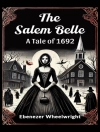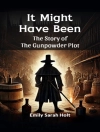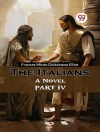In ‘John Splendid: The Tale of a Poor Gentleman, and the Little Wars of Lorn, ‘ Neil Munro crafts a richly textured narrative that intertwines historical fact with compelling fiction, set against the backdrop of 17th-century Scotland during a tumultuous period of civil upheaval. Munro employs a vibrant literary style, marked by detailed character development and lyrical prose, creating a vivid portrait of John Splendid, a poor gentleman caught in the little wars of Lorn. The novel is steeped in the complexities of Scottish identity, capturing the socio-political climate of the time with eloquence and depth. Neil Munro, a noted Scottish author and journalist, drew upon his own insights into Scottish history and culture to create this seminal work. Born in 1863, Munro’s background in journalism honed his narrative skills, while his passion for storytelling inspired him to resurrect figures from the past, thereby documenting the human experience within Scotland’s turbulent history. His love for the landscape and folklore of his homeland profoundly influenced his writing, bringing authenticity to his characters and settings. This novel is highly recommended for readers who appreciate historical fiction that not only entertains but also educates. Munro’s masterful engagement with the moral dilemmas faced by his characters offers profound insights relevant to contemporary issues of identity, loyalty, and honour. ‘John Splendid’ is an essential read for those seeking to immerse themselves in Scotland’s rich literary heritage.
A propos de l’auteur
Neil Munro (1863–1930) was a Scottish journalist, newspaper editor, author and literary critic. Munro was best known for his writing steeped in the rich tapestry of historical Scotland, often infusing his tales with his own keen wit and storytelling prowess. His novel ‘John Splendid: The Tale of a Poor Gentleman, and the Little Wars of Lorn’ is an exemplary work, highlighting Munro’s talents in creating vivid characters and a compelling narrative that transports readers to the tumultuous period it depicts. Munro’s prose often combined a romantic view of Scottish history with sharp and often humorous observations of the character and manners of his countrymen. With a legacy firmly rooted in the Highlands, his work is frequently celebrated for its authentic depiction of Gaelic culture and its influence on the Scottish literary canon. Munro’s contributions to literature have been recognized as both an entertainment and a chronicle of a bygone era, providing a literary bridge to Scotland’s storied past.












